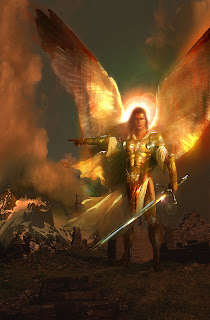Restating some of the themes that are the reason this blog exists, but whence I often drift....
My view is that the soundest foundation for political thought is the moral philosophy outlined by the philosopher William James in "The Moral Philosopher and the
the Moral Life".
That essay is perhaps best remembered for this sentence.
"Or if the hypothesis were offered us of a world in which Messrs. Fourier's and Bellamy's and Morris's utopias should all be outdone, and millions kept permanently happy on the one simple condition that a certain lost soul on the far‑off edge of things should lead a life of lonely torture, what except a specifical and independent sort of emotion can it be which would make us immediately feel, even though an impulse arose within us to clutch at the happiness so offered, how hideous a thing would be its enjoyment when deliberately accepted as the fruit of such a bargain?"
The point is that we ought to respect that specifical and independent emotion and refrain from torturing the lost soul.
But let us continue with James' essay. For his overriding point is that we will always act under conditions of uncertainty, because "there is no such thing possible" James writes, "as an ethical philosophy dogmatically made up in advance."
There are a plurality of rights that are, in the context of our limited temporal perspective, in conflict. The only way forward is the meta-right of reconciling the first-order rights. He gives an entertainingly condensed picture of politico-moral conflicts at the end of the 19th century. "See everywhere the struggle and the squeeze; and ever-lastingly the problem of how to make them less. The anarchists, nihilists and free-lovers; the free-silverites, socialists, and single-tax men; the free-traders and civil-service reformers; the prohibitionists and anti-vivisectionists; the radical darwinians with their idea of the suppression of the weak, -- these and all the conservative sentiments of society arrayed against them are simply deciding through actual experiment by what sort of conduct the maximum amount of good can be gained and kept in this world."
In this process, we are all bound to be in the wrong in some sense. Hence the need to pray for forgiveness. But we may also hope that even in our wrongnesses we contribute to the education and development of our species, to the gradual reconciliation of the different rights. To the meta-right.
Thus much, James. I do not claim him as an anarcho-capitalist. Indeed, you'll see that he lists "anarchists" as one of the contending factions in the above exposition, part of the fray. A philosopher will be above the fray. (The "conservative sentiments of society" are part of the fray too, though arrayed against all the others.)
My own view of anarcho-capitalism, though, is that it is actually one with the meta-right. It is what I see when I seek to join James above that fray. It is where we will find ourselves heading as we work to reconcile all of our different impulses.
Josiah Royce expounded on a similar concept when he talked about "loyalty to loyalty." A meta-loyalty. He wrote about how wonderful loyalty to a group larger than one's self is. But then he took note of the obvious objection to any "philosophy of loyalty." A pirate may be loyal to his pirate captain. They may all work together quite well. But they are working to rob the honest folk who have trusted treasure to that merchant vessel so unfortunate as to sail past them! Should we celebrate the loyalty of a pirate?
Well ... yes, in a sense. But we should also note that it fails to be loyal to loyalty itself. The loyalty of the sailor on the merchant vessel to HIS captain doesn't infringe upon anyone else's loyalty. THAT sort of loyalty, then, is also meta-loyal. The pirate's loyalty only works to defeat the loyalty of others, and this is both exemplifies an ideal and undermines it.
Meta-right. Loyalties that include loyalty to loyalty. In such ideas we see the way forward, and I hold that way will turn out to be anarchic. In the meantime, we deal with the specific dilemmas we face as best we can, fumbling, and trying to keep in mind the broader goals beyond the day to day crises.



